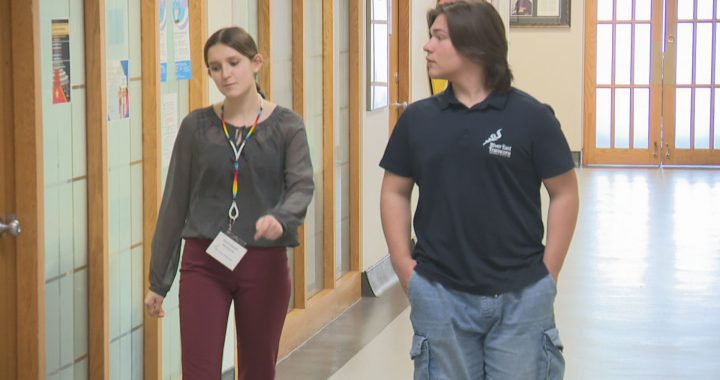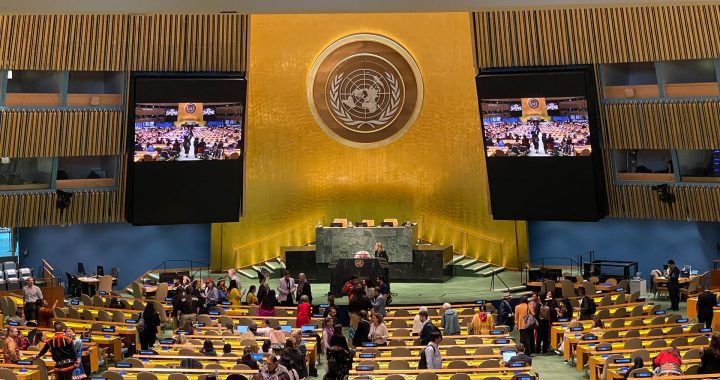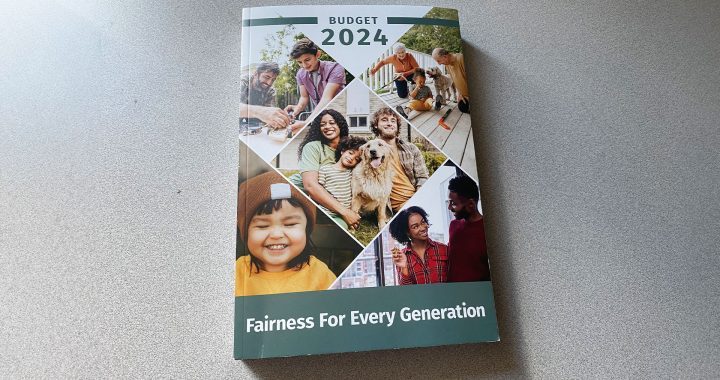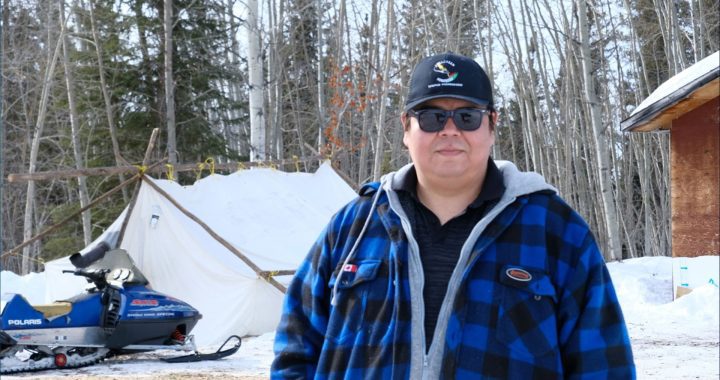As the Pfizer COVID-19 vaccines arrives in provinces this week and into the arms of frontline workers and senior citizens, many are applauding this momentous occasion, but in places online a different conversation is happening.
Many Indigenous Peoples across the country, among others, are voicing their apprehensions over the new vaccine with some saying it brings up concerns over past pandemics.
A quick scroll through Facebook or Twitter and you can find comments suggesting the vaccine will be tested on Indigenous Peoples or the government is using it to track people.
On the other end of the spectrum people are cautiously optimistic with one person writing, “I’m not about to run out and get it ASAP but if I see it’s working out well, I have nothing against it.”
APTN News spoke with a number of people regarding their concerns, as well as Indigenous leaders and healthcare professionals about the new vaccines and what people need to do to get the most accurate information.
The conversations taking place online aren’t surprising to Michelle Driedger who is a Métis professor in the department of community health sciences at the University of Manitoba.
Driedger previously did H1N1 research with urban First Nations and Métis peoples.
These comments were similar to what she heard at that time when Indigenous people in Manitoba were prioritized to receive the vaccine after severe outbreaks in the Island Lake region.
“A lot of concerns being raised by participants was that they felt like the vaccine was being tested on them to make sure that it was safe before giving it to the white guys,” said Driedger. “Historically when have people of First Nations, Métis and Inuit ancestry ever been prioritized to receive anything good before?
“So some of the concerns citizens were expressing made sense in that context.”
History is prevalent in the conversations taking place online. It’s also the basis for many peoples’ fears.
In the 18th century there are stories of settlers including General Jeffrey Amherst giving smallpox infested blankets to Indigenous communities in what was they called New France.
In the residential schools and sanatoriums eras residents have shared stories of medical testing and experiments.
Most recently, a class action lawsuit was launched after several Indigenous women say they were sterilized without their consent.
And still to this day Indigenous people face systemic racism within the healthcare system resulting in substandard care or neglect.
More effort needs to be put into providing Indigenous peoples with the information needed for them to make an informed decision when it comes to new medicines and vaccines, according to Dr. Veronica McKinney.
“I think it has to do with the treatment that they’ve had through the years. I wonder if we’re actually doing a good enough job on education…really helping people to understand what is this [vaccine] and what are some of those nuances.”
Education also falls into the laps of Indigenous leadership said both Driedger and McKinney.
The Assembly of Manitoba Chiefs (AMC) hosts weekly Facebook live meetings updating the public and media on the virus in communities in the province.
The vaccine has been the topic of conversation for the past two weeks.
“I think the risk of Indigenous people being rushed into taking the vaccine would be significantly lower than any delays in getting the vaccine available for Indigenous peoples,” said Dr. Marcia Anderson during one meeting.
In the case of the COVID-19 vaccine, Indigenous Peoples in remote and isolated communities are considered a priority group but it could be weeks before communities see it because of limited amounts and storage requirements.
Healthcare workers and senior citizens are first on the list of many provinces to receive the initial 249,000 doses of Pfizer vaccines available.
Health Canada is on track to approve the Moderna vaccine, the federal government announced Tuesday.
This will be going to communities and the territories because of its less stringent storage requirements (Pfizer needs an ultra-cold storage container and needs to be stored at temperatures of -70 degrees C while Moderna only needs to be stored at temperatures of -20 degrees C).
During one of AMC’s weekly meetings, Black River First Nation Chief Sheldon Kent shared his excitement surrounding the vaccines.
“I’ll step up first to take that vaccine just to show that I believe in the Western medicine,” said Kent.
Leaders are also urging those with concerns to seek out reliable sources for vaccine information.
“There’s a lot of misinformation out there so I really encourage our people to look at the scientific studies to try and wade through them to really understand what the facts are,” said Assembly of First Nations Ontario Regional Chief RoseAnne Archibald.
The Pfizer vaccine relies on mRNA technology meaning the vaccine doesn’t contain a version of the virus or its non-infectious parts, according to a spokesperson for Pfizer. It does deliver to the body the genetic information about the viral spike in protein. The aim with the vaccine is to train the immune system to recognize this protein, so when the real virus comes along, the body can fight it off.
Common side effects are similar to other vaccinations such as soreness after receiving the vaccine or headaches.
In some cases in the United Kingdom people have had an allergic reaction.
Health Canada has said people with allergies to any ingredients in the Pfizer vaccine should refrain from getting it.









